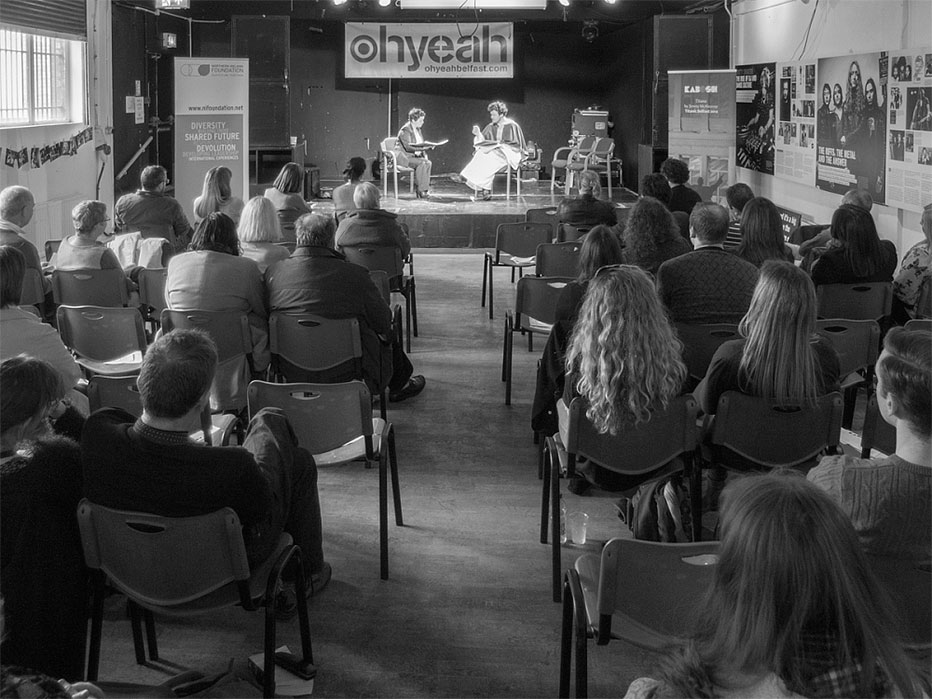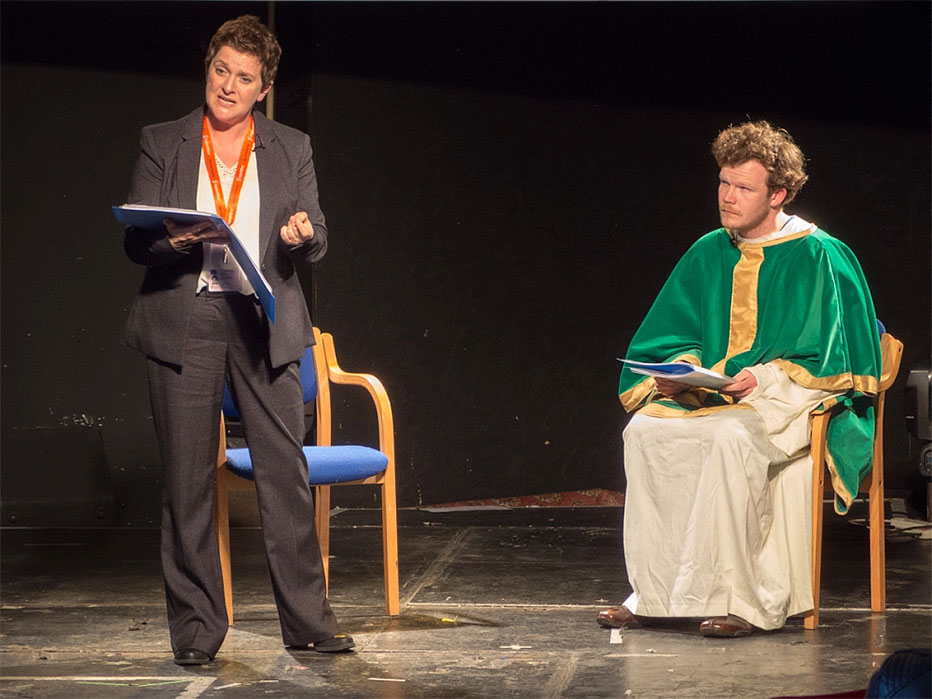
A public jury of citizens of Ireland voted to deport (Saint) Patrick, after hearing testimony in a staged hearing of his immigration application for the right to remain, at a “provocation” event by Kabosh Theatre Company at the Oh Yeah Music Centre, sponsored by the Northern Ireland Foundation as part of the Imagine! Festival of Ideas & Politics.
Immediately following the performance of caseworker, Cara, assisting applicant, Patrick, the audience decided 26-22 to reject his request.
The 30-minute play explored Patrick’s time spent in Ireland before his first “visa application”, which we learn from his own account that he was a victim of human trafficking. We’re not certain whether Patrick would have been better off reporting this to the authorities when he had a chance; he might have been held in a detainment centre and deported anyway.
Patrick returned to Ireland under a three-year “temporary tier two visa”, as a minister of this unfamiliar religion called Christianity; this visa was extended for another three-year term. But Patrick is caught out on his lack of declarations of gifts received from devoted followers; his lack of fixed abode doesn’t help either.

Cara explains why non-citizens are treated differently than citizens, and how tolerance towards immigrants is swayed on the larger public stage of politics and the media. Patrick needed to position himself as “the good kind of immigrant”. Perhaps his fate was doomed when he referred to the practices of the land as unclean, how its people worshiped idols, described the native people of the island as heathens, showing no respect for the indigenous beliefs.
An exasperated Cara remarked: “You come here to build a church, and you built it on the bones of traditions that have been thriving here for centuries!” After Patrick is served with his deportation order, there was a facilitated discussion with the audience.
I asked whether they thought such a citizens’ jury would be a feasible proposal for considering such cases; after all, citizens are called forward for criminal cases.
We mooted the point of whether any non-citizen could receive a fair and unbiased trial from a jury of citizens. One member of the audience remarked that he would be persuaded by initial impressions of the applicant. In this case, with Patrick wearing his church vestment, this juror said that he would be minded to approve his application; another juror explained that he voted ‘no’ because of his religious fundamentalism.
This is linked with the phenomenon of ‘confirmation bias’, whereby our opinions are the result of paying attention to information that confirms what we already believe, while ignoring information that challenges them. Likewise, when society is enjoying the good life, people can see the benefit of open immigration; but when it isn’t so good, it’s easy to place the source of fear and anxiety onto immigrants.
As Cara explained: “We act is if law were a sacrosanct entity existing and operating in an ethical sphere untouched by public opinion and politics. But that isn’t true. Politics influences law, and politics is about people; it always has been and it always will be. The only thing that changes are the hands guiding the pen.”

In this event of participatory democracy, the ‘jurors’ learnt more about the complexity of immigration policy and how it interacts with the desires and objectives of the state and its constituent citizens. For while all persons should enjoy all human rights, citizens are likely to have the last say in the nature of their society, how much it embraces cultural diversity, and how it welcomes others into its destiny.
Written by Allan Leonard and first published on northernireland.foundation on 19 March 2016.